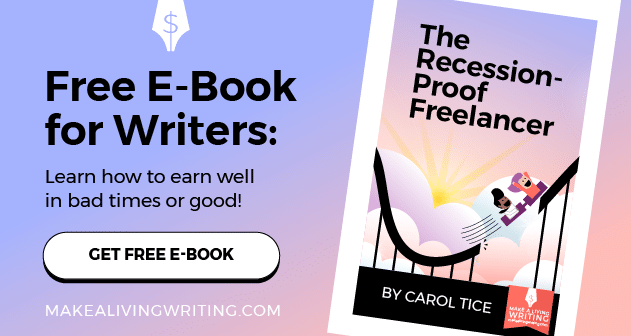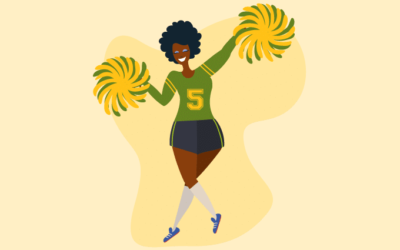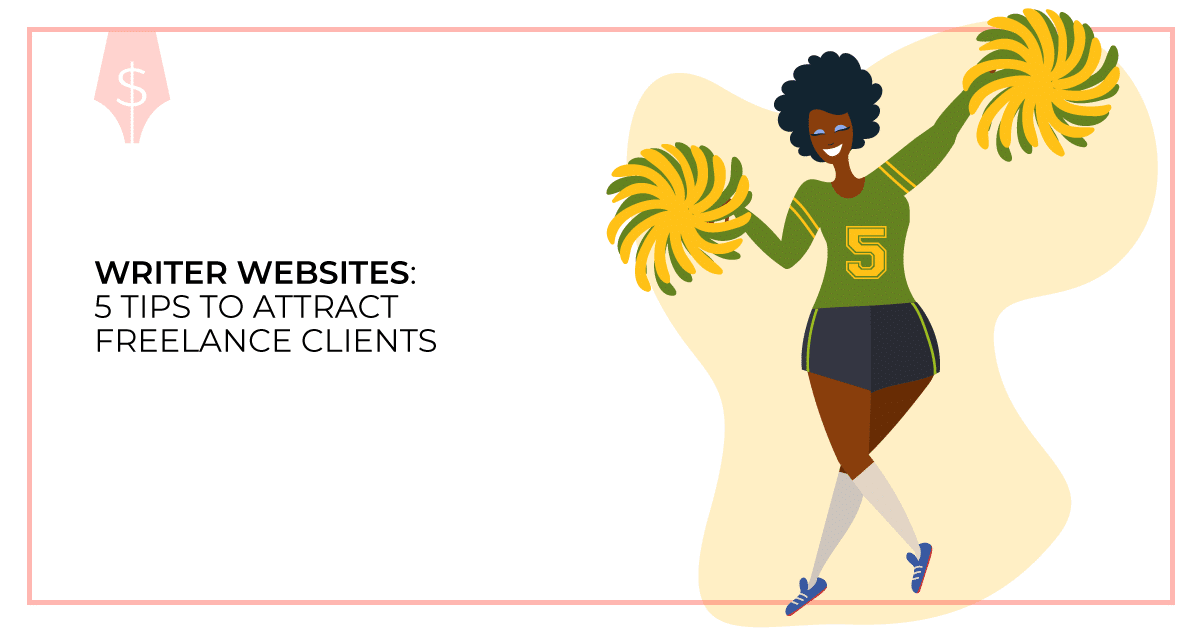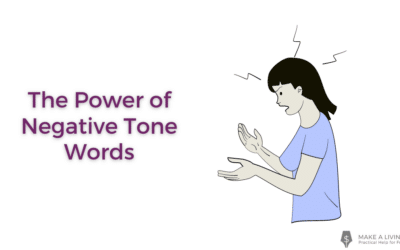What’s it like to be a black writer?
When George Floyd died at the hands of Minneapolis police officers, it shined a light on racial issues and inequalities, justice for all, and basic human rights for everyone…including freelance writers.
But if you’re not a black writer, you don’t really know what the day-to-day experience is like.
Or maybe you’re wondering what to say, what to do, or how you can be part of the solution to support black writers and people of color.
So what’s it like to be a black writer, right now?
We reached out to freelance writer, journalist, and Make a Living Writing contributor Williesha Morris to weigh in on what it’s like to be a black writer.
“The black experience in any industry or in any context can be a grueling one,” says Williesha. “Often the pressure feels like so much more is expected of you. Being a black writer is no exception.”
And then a pandemic happens.
And then there’s a period of unrest and protests about violence against black people and people of color.
How do you make sense of it all?
If you’re a black writer or person of color, you’ve got to make some decisions about how to navigate your career.
And if you want to be part of the solution, you’ve got to be proactive about it…black, white, or anything else.
So how do you survive and thrive as a black writer or POC during a time of unprecedented upheaval? Read on to hear about Willi’s experience — and her tips for writers of all shades.
Meet freelance writer Williesha Morris

Williesha Morris
Williesha Morris is a veteran journalist and freelance writer.
She’s written for Birmingham Magazine, Office Pro Magazine, the Shelby County Reporter, Write Naked, Be a Freelance Blogger, and many others.
She’s also written for Make a Living Writing, and provided a play-by-play about how she landed an assignment with the highly competitive AARP magazine in this Q&A: Write for Magazines: Steals This Writer’s Strategy to Write for Top Pubs.
Morris has celebrated plenty of wins as a freelance writer. But she also knows firsthand what it’s like to be a black writer in today’s environment.
What’s it like to be a black writer? Here’s what she has to say:
Q1: How do I keep writing when it feels impossible to succeed?
Williesha: Some have described the current black experience as a “pandemic within a pandemic.” First, it’s imperative to acknowledge and work through your fear and anger.
Communities of color are collectively grieving the loss of so many people who were injured, harassed or killed for being black or brown. They are also at higher rates of dying from COVID-19. Even if you don’t know the victims personally, the losses can be visceral and deep.
- What would you typically do if you lost a loved one?
- Would you try and push on and do work?
If the answer is “No,” then give yourself a break. A common phrase among the black community is:
“You have to work twice as hard to get half the reward.”
That means you require “twice” the self-care and healing!
Don’t feel guilty about requesting deadline extensions from your clients. You aren’t expected to perform 100 percent when you’re in grief. However, if your income is dependent on freelance writing, this may not be an option.
Q2: Does self-care really make a difference during a time like this?
Williesha: One of my favorite ways to relax is to get a massage, but I’m continuing to self-quarantine.
However deep and lasting self-care is dedicating free moments to something that’s productive, uplifting, informative or just plain fun. For example, you can:
- Tune into podcasts on your niche (or something new!)
- Listen to fiction audiobooks or music you know all the lyrics to. (This doesn’t always work for me when I’m concentrating. I get too caught up in the lyrics and am obligated to sing along or lip sync at a minimum!)
- Learn a new language. (I’ve been re-learning Spanish and volunteering with an online organization.)
- Connect with other writers of color. You don’t have to talk shop. You can discuss what’s happening and release some of the powerful emotions you’re feeling.
- Write a personal essay about something important to you, and submit it.
- Create personal blog and write about your thoughts, feelings, and experiences. (Note: you don’t have to share it with the world.)
- Keep a diary or journal. I use a notebook and write down all of the things on my mind. And I mean everything. Like if I have a toothache, I write it down. And remember, you don’t have to go back and check everything off that list.
The point of self-care…
Take a break from writing professionally and focus on you. Writing is your superpower, and you need a break to recharge every now and then.
Q3: What’s your experience been dealing with white editors?
Williesha: My experience has varied. Sometimes I think they’re talking down to me. But to be fair, my best experience so far as a freelancer was with a white woman.
I think a freelance-work environment is often free of some of that unconscious bias black folks encounter in brick and mortar, in-person jobs.
It still happens, because eventually editors find out what you look like. But I haven’t experienced it as much in a virtual environment. It’s easier for your work to shine.
Q4: Have you or black writers you know experienced discrimination?
Williesha: I think I have, but this can be difficult to determine. Maybe it’s because I’m a woman, or I’m not a big-name writer. There’s no telling, because this type of thing isn’t always blatant.
I have a “black-sounding” name. One of the major annoyances is having to shorten my name (Willi), because I feel better about getting less biased feedback. It’s a small thing, but it contributes to the erasure of who I am.
I have seen someone’s pitches get rejected and co-opted by that publication later. Can you prove it’s discrimination? No. It’s easy for an editor to maintain an all-white or mostly-white staff…simply reject the pitches from or about black and brown people. The racial and gender gatekeeping is real offline and offline.
Q5: What do you say to white writers who want to talk about what’s happening?
Most of the time I just tell them I don’t want to talk. Or I suggest places to donate or get more information. For example:
- You can give to organizations like Color of Change and Use of Force Project. These non-profits are working diligently to create lasting change for black and brown people and end systemic and institutional racism.
- Find out if there’s a local fund to support protestors on the ground. They need food, water, even bail money. You can also use your gift to inform or help others.
- Pitch publications accepting submissions about the movement that’s happening.
Q6: What can white writers do to be a good allies for black writers and POC?
Williesha: White writers need to lift up writers of color. You’re not going to have a dozen black writers suddenly email you for help. You have to do the work.
- Talk about them on social media.
- Read their work.
- Send writers of color writing guidelines or calls for pitches from interesting publications (and not just the black and brown-centered ones).
You have to be intentional about this
We appreciate empathy. But we don’t want your pity or your tears. Resist the urge to ask them right now if they’re OK. We’ve been dealing with this all of our lives, not just in the last few weeks. We survive and often thrive despite this. What else can you do?
- Read about the system of white supremacy. It benefits you, but is a giant thumb on black and brown people, and has been for centuries. Almost all of the current New York Times bestsellers are about racism and white supremacy.
- Call out other white people when you see or hear something racist.
- Learn about microaggressions to ensure you’re not displaying bias or to know when someone else is.
Be part of the solution to help all freelance writers move up and earn more
The struggle is real for black writers and POC, but you can still survive and thrive. If you’re not a person of color, use these tips to help you cope, understand what’s happening, and be part of the solution.
Take care of yourself. Nurture your entrepreneurial spirit. Help others along the way. And don’t give up on your freelance writing goals.
What are you doing to be part of the solution? Let’s discuss in the comments below.
Williesha Morris is a writer and administrative assistant who loves the internet and has a fondness for both Star Wars and Star Trek. Follow her on My Freelance Life.












